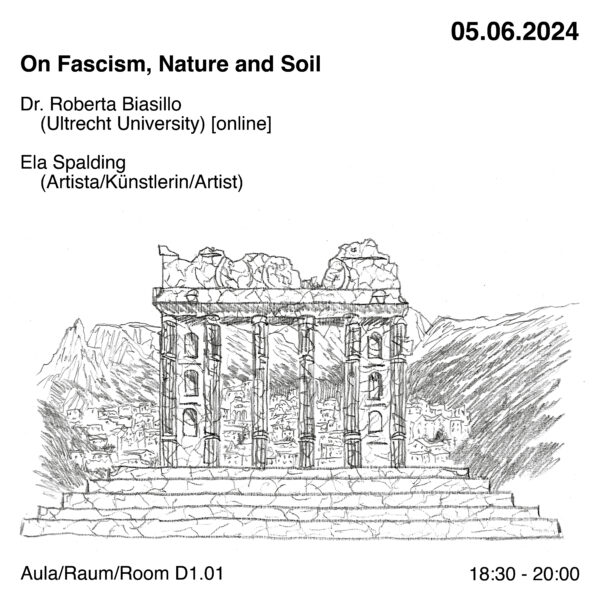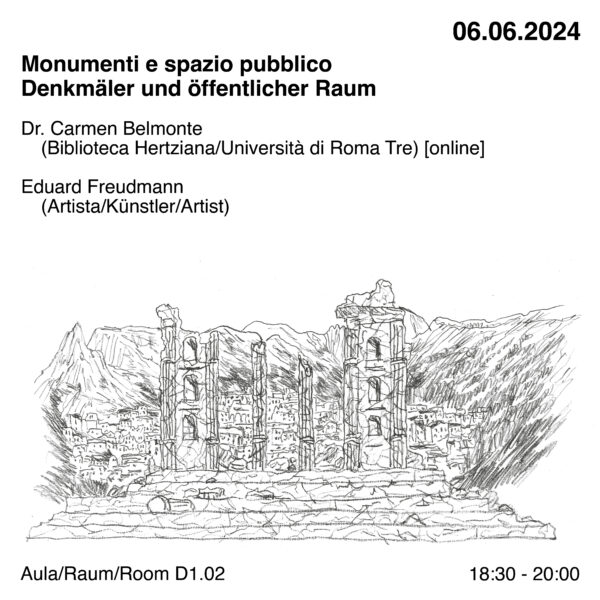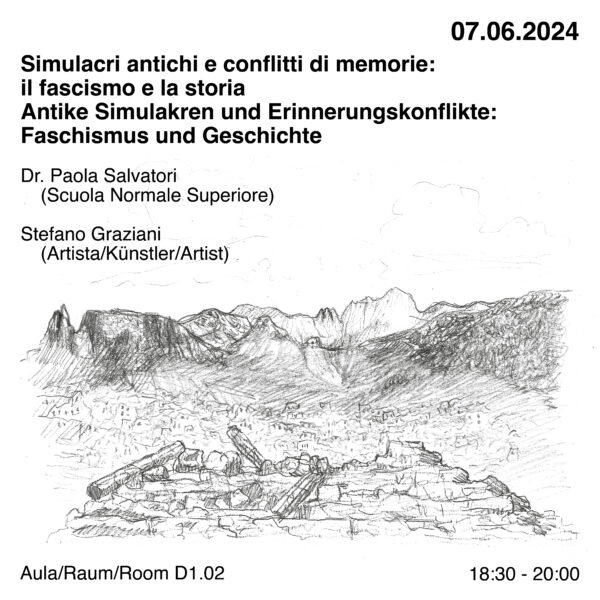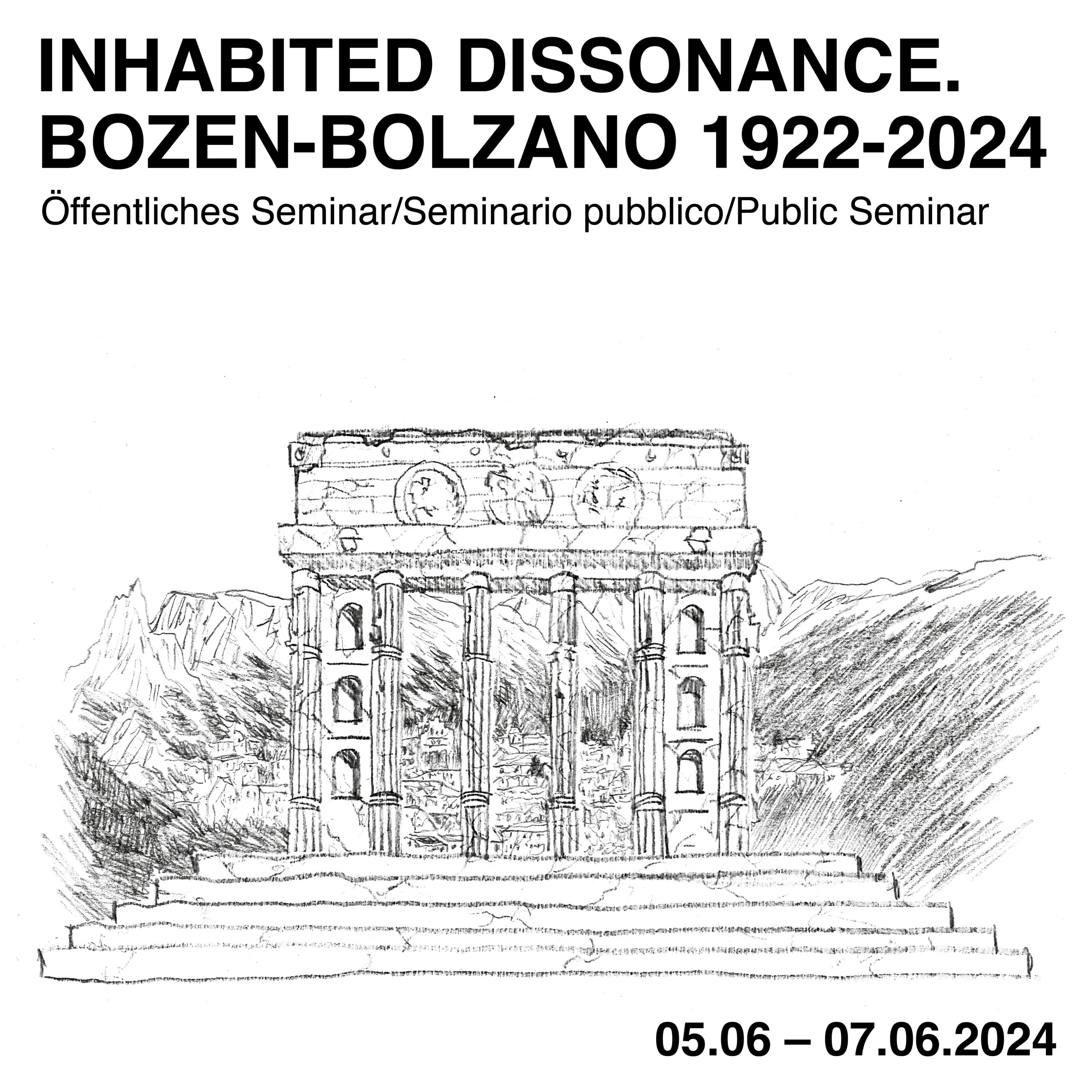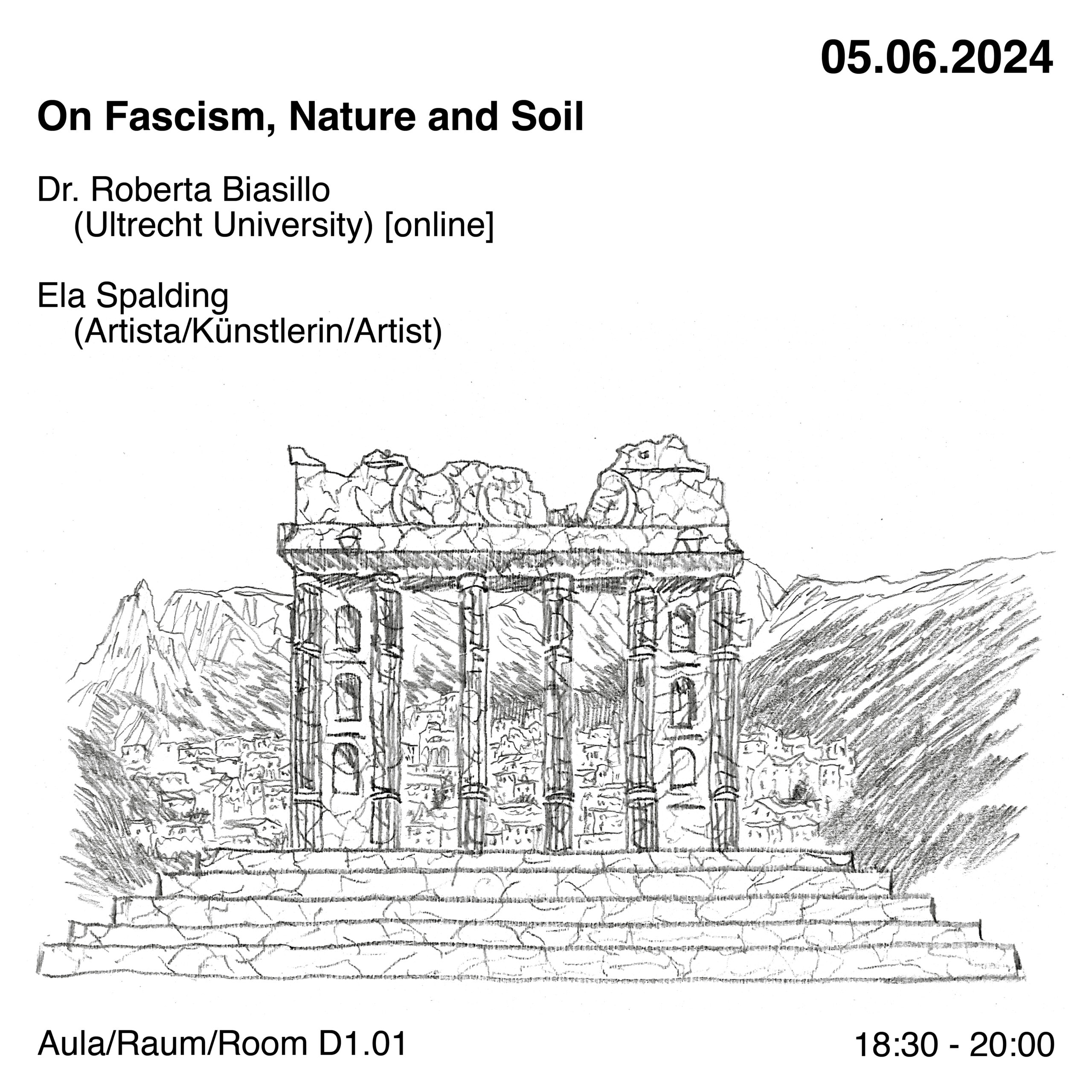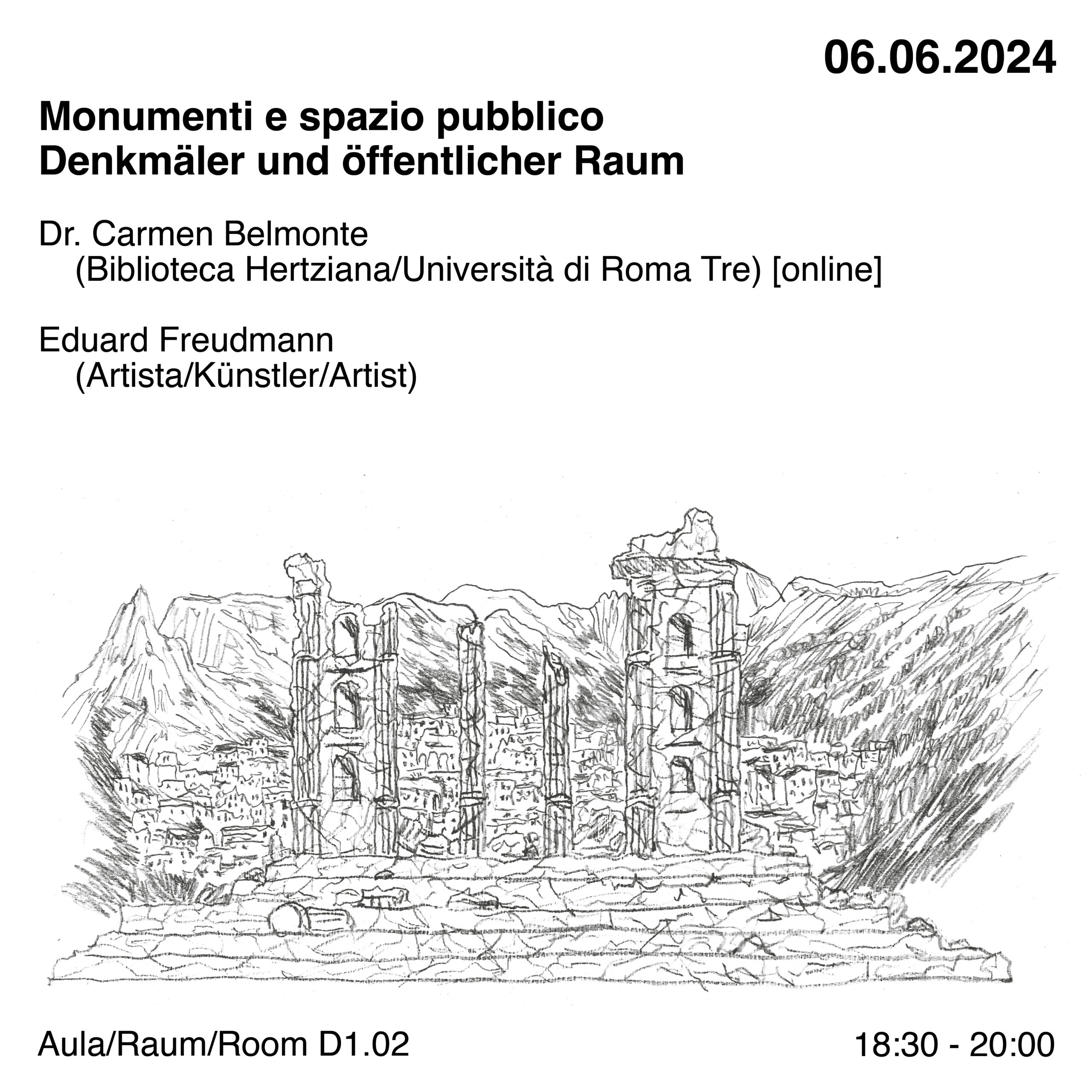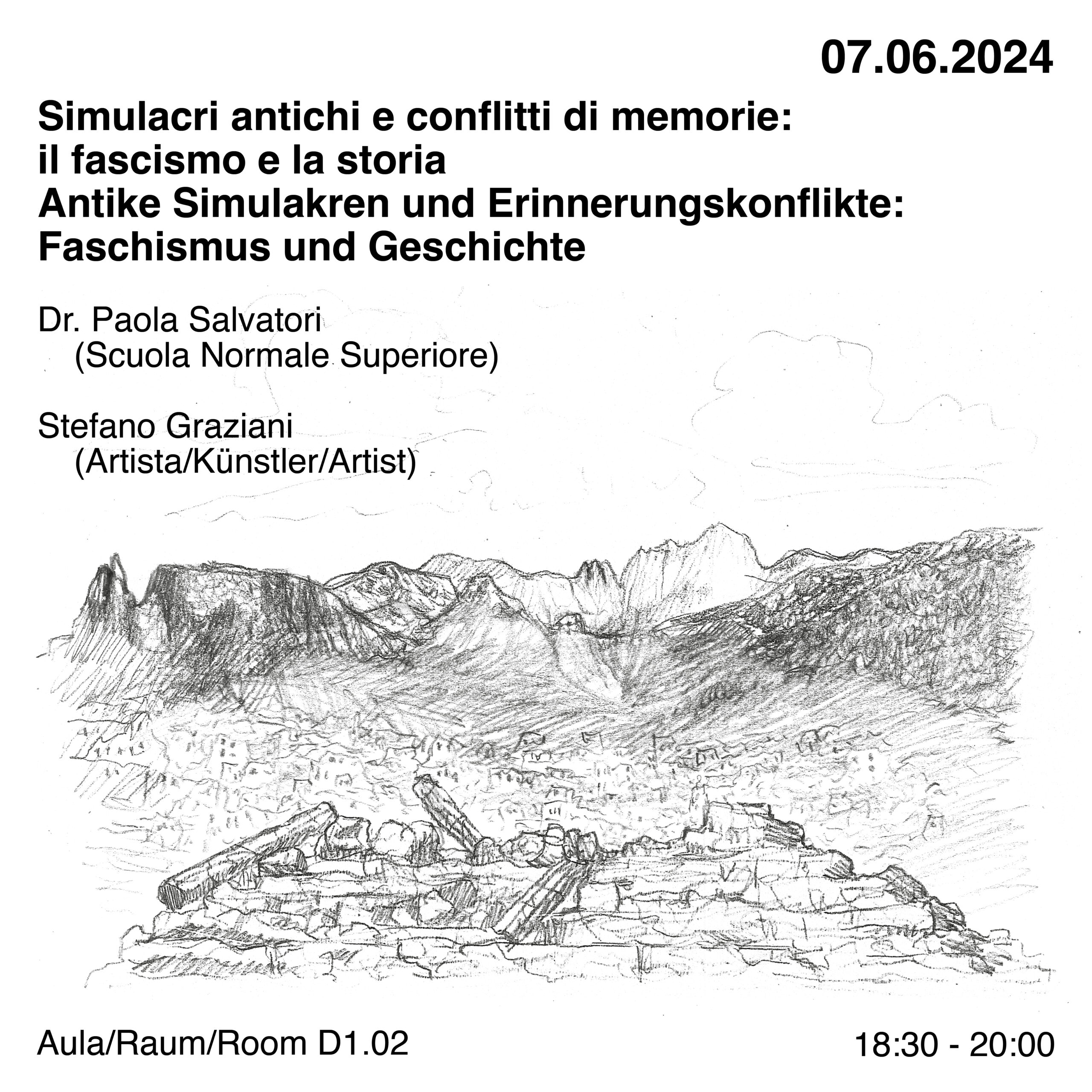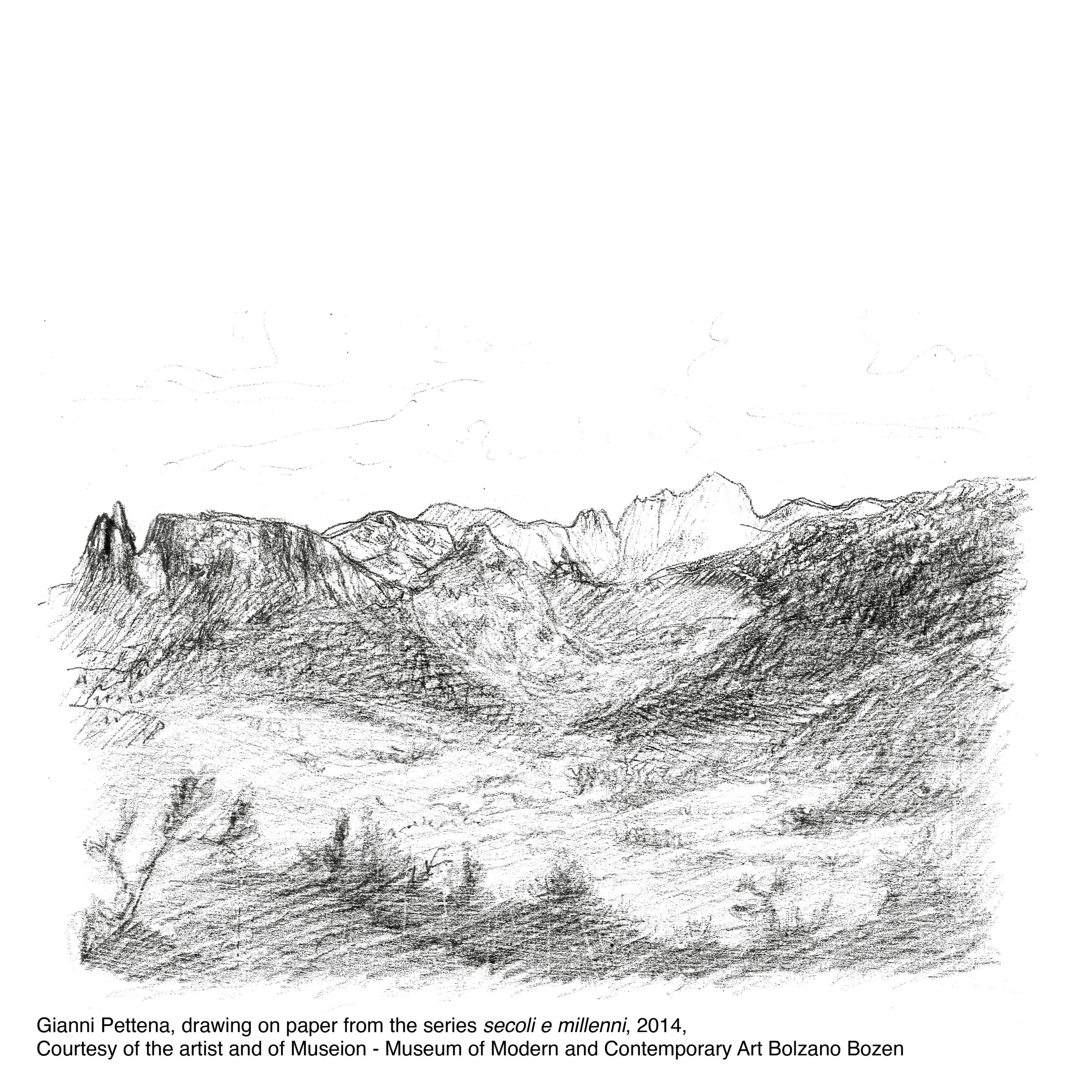Das Erbe des Faschismus sichtbar machen? Eine Seminarreihe der unibz
Der Umgang mit Bozens faschistischem Erbe. Eine nachhaltige Auseinandersetzung mit dem widersprüchlichen Vermächtnis einer Stadt (CuFa-Curare Fascismo) ist ein interdisziplinäres Forschungsprojekt der Fakultät für Design und Künste der Freien Universität Bozen. Prof. Roberto Gigliotti leitet dieses Projekt in Zusammenarbeit mit Prof. Andrea Di Michele, Historiker der Fakultät für Bildungswissenschaften und Waltraud Kofler Engl, Leiterin der Plattform Kulturerbe und Kulturproduktion. Es wird in Kooperation mit der Galerie Lungomare und BAU – Institut für zeitgenössische Kunst und Ökologie sowie Dr. Andres Lepik, Direktor des Architekturmuseums und Professor für Architekturgeschichte und kuratorische Praxis an der Technischen Universität München, durchgeführt. Zu den Dozent:innen und Forschenden der unibz zählen die Kunsthistorikerin und Projektkoordinatorin Elisabetta Rattalino, die Architektur- und Landschaftshistorikerin Gaia Piccarolo, der Visual Designer Gianluca Camillini und der Architekturkritiker Davide Tommaso Ferrando.
CuFa untersucht den architektonischen Wandel Bozens während des faschistischen Regimes und entwickelt Ausstellungsmethoden, um die komplexe Stadtgeschichte durch die Analyse ihrer sichtbaren Spuren kritisch zu hinterfragen. „Unser Ziel ist die Rekontextualisierung dieser Spuren in der zeitgenössischen Kulturlandschaft der Stadt, indem wir museografische Instrumente einsetzen, um das Echo einer dissonanten und widersprüchlichen Vergangenheit zu vermitteln und zu kommunizieren“, erklärt Prof. Roberto Gigliotti. Die Forschungsergebnisse werden im April 2025 in einer Ausstellung in der Stadtgalerie und an ausgewählten öffentlichen Plätzen der Stadt präsentiert.
Inhabited Dissonance. Bozen-Bolzano 1922-2024 ist die erste öffentliche Veranstaltung im Rahmen des Forschungsprojekts. Die Seminarreihe besteht aus drei öffentlichen Veranstaltungen mit dem Ziel, kritische Ansätze zur Untersuchung und Neudefinition der architektonischen Spuren des historischen Faschismus in Italien zu diskutieren. Der Fokus liegt dabei auf Themen, die für Stadt Bozen relevant sind. An jeder Veranstaltung nehmen eine Wissenschaftlerin oder ein Wissenschaftler sowie eine Künstlerin oder ein Künstler teil, um den Dialog zwischen historischer Forschung und künstlerischen Methoden zu fördern. Dieser interdisziplinäre Ansatz fördert den Austausch zwischen Historiker:innen, die materielle und visuelle Spuren des Faschismus aus Archiven, Museen und im öffentlichen Raum erforschen, und Kunstschaffenden, die neue kritische Perspektiven durch Projekte und Untersuchungsmethoden eröffnen möchten. Ziel ist es, das Verständnis und die Neubewertung schwieriger und kontroverser Momente der Geschichte zu verbessern.
Die Veranstaltungen: Termine und Themen
On Fascism, Nature and Soil, 5. Juni (Hörsaal D1.01, in Englisch). Dieses Seminar widmet sich der Ideologie der Natur: mit Roberta Biasillo (Universität Utrecht), Umwelthistorikerin und Autorin von Una storia ambientale delle paludi pontine (Viella, 2023), und der Künstlerin Ela Spalding. Spalding hat eine künstlerische Methodik (SUELO) rund um das Konzept, die Metapher und die Materialität des Bodens entwickelt.
Denkmäler und öffentlicher Raum, 6. Juni (Hörsaal D 1.02, in Deutsch und Italienisch). Diese Veranstaltung konzentriert sich auf die Beziehung zwischen Denkmälern und öffentlichem Raum. Ausgehend von den Überlegungen in ihrem jüngsten Buch (A Difficult Heritage. The After-Life of Fascist-Era Art and Architecture, 2023) wird sich die Kunsthistorikerin Carmen Belmonte (Universität Roma Tre/Bibliotheca Hertziana) mit der Geschichte des italienischen Kolonialismus und den Praktiken der Umwidmung dieses Erbes beschäftigen. Der Wiener Künstler Eduard Freudmann wird über seine partizipativen künstlerischen Interventionen an umstrittenen Denkmälern sprechen. Mit Simultanübersetzung.
Antike Simulakren und Erinnerungskonflikte: Der Faschismus und die Geschichte, 7. Juni (Hörsaal D1.02, in italienischer Sprache). Dieses Seminar widmet sich der Beziehung zwischen historischer Erzählung, politischer Mythologie und Denkmälern. Vortragende sind Paola Salvatori (Scuola Normale Superiore), Zeithistorikerin und Herausgeberin u.a. von Il Fascismo e La Storia (2022), und der Künstler Stefano Graziani, der bekannt für seine fotografischen Recherchen ist. Mit Simultanübersetzung.
Bild: Hubert Berberich (Wikimedia)
Showing the Legacy of Fascism? The unibz seminar series
The series of meetings ‘Inhabited Dissonance. Bozen-Bolzano 1922-2024’ will be held on 5, 6 and 7 June, from 6.30 to 8 p.m., on the Bolzano campus.
Caring for the Legacy of Fascism in Bozen-Bolzano. A sustainable approach to the dissonant heritage of a city (CuFa) is the interdisciplinary research project of the Faculty of Design and Art of the Free University of Bozen/Bolzano, coordinated by Prof. Roberto Gigliotti, in collaboration with historian Prof. Andrea Di Michele (Faculty of Education), and Waltraud Kofler Engl, director of the Cultural Heritage and Cultural Production Platform. The project is realised in cooperation with Lungomare and BAU – Institute for Contemporary Art and Ecology, and Dr. Andres Lepik, Director of the Museum of Architecture and Chair of History of Architecture and Curatorial Practices at the Technical University of Munich. The working group of unibz lecturers and researchers includes Elisabetta Rattalino, art historian and project coordinator, architecture and landscape historian Gaia Piccarolo, visual designer Gianluca Camillini and architecture critic Davide Tommaso Ferrando.
CuFa investigates the architectural transformation of Bolzano during the fascist regime and explores exhibition methodologies that can critically interrogate the complexity of this urban history by exploring its visible traces. ‘Our goal is to recontextualise these traces in the contemporary cultural landscape of the city, using museographic tools to mediate, transmit and communicate the echo of a dissonant and conflictual past,’ says Prof. Roberto Gigliotti. The results of the research will be presented with an exhibition in the Galleria Civica di Bolzano and selected public spaces in the city in April 2025.
Inhabited Dissonance. Bozen-Bolzano 1922-2024 is the first public event of the research project proposed by the CuFa working group. It consists of a cycle of three meetings: three public events that aim to promote critical approaches to the study and re-signification of the architectural and environmental traces of historical fascism in Italy, focusing on issues relevant to the city of Bolzano. Each meeting will see the participation of a scholar and an artist, encouraging a dialogue between historical research and artistic methodologies. This interdisciplinary approach aims to allow an exchange between those who deal with historical and art-historical investigations on fascism through material and visual traces preserved in archives, museum collections and still visible in public space, and those who work in these contexts, proposing artistic projects and methodologies of investigation that have the potential to open up new critical perspectives in the communication, understanding and re-signification of difficult and controversial moments in history.
The meetings: dates and themes
On Fascism, Nature and Soil, 5 June (room D1.01, in English). This meeting will be dedicated to the ideology of nature, with Roberta Biasillo (Utrecht University), environmental historian and author of Una storia ambientale delle paludi pontine (Viella, 2023), and artist Ela Spalding. Spalding has developed an artistic methodology (SUELO) around the concept, metaphor and materiality of soil.
Monuments and Public Space, 6 June (Room D 1.02, in German and Italian). This lecture will focus on the relationship between monuments and public space. Starting from the reflections in your latest book (A Difficult Heritage. The After-Life of Fascist-Era Art and Architecture, 2023), art historian Carmen Belmonte (University of Roma Tre / Bibliotheca Hertziana) will focus on the traces of Italian colonialism and the practices of re-signification of this heritage. The Viennese artist Eduard Freudmann will discuss his participatory artistic interventions dedicated to controversial monuments. Simultaneous translation will be provided.
Ancient Simulacra and Conflicts of Memories: Fascism and History, 7 June (room D1.02, in Italian). The meeting investigates the relationship between historical narrative, political mythology and monuments, through the talk by the contemporary historian and editor of, among others, the volume Il Fascismo e La Storia (2022), Paola Salvatori (Scuola Normale Superiore) and the talk by the artist Stefano Graziani, known for his photographic research. Simultaneous translation will be provided.
Photo: Hubert Berberich (Wikimedia)
Mostrare l’eredità del fascismo? Il ciclo di seminari di unibz
Curare l’eredità del fascismo a Bolzano. Un approccio sostenibile al patrimonio dissonante di una città (CuFa) è il progetto di ricerca interdisciplinare della Facoltà di Design e Arti della Libera Università di Bolzano, coordinato dal prof. Roberto Gigliotti, in collaborazione con lo storico prof. Andrea Di Michele (Facoltà di Scienze della Formazione), e Waltraud Kofler Engl, direttrice della Piattaforma Patrimonio Culturale e Produzione Culturale. Il progetto è realizzato in collaborazione con Lungomare e BAU – Istituto per l’arte contemporanea e l’ecologia, e Dr. Andres Lepik, direttore del Museo di Architettura e della Cattedra di History of Architecture and Curatorial Practices all’Università Tecnica di Monaco. Il gruppo di lavoro di docenti e ricercatori e ricercatrici di unibz include Elisabetta Rattalino, storica dell’arte e coordinatrice del progetto, la storica dell’architettura e del paesaggio Gaia Piccarolo, il visual designer Gianluca Camillini e il critico dell’architettura Davide Tommaso Ferrando.
CuFa indaga la trasformazione architettonica di Bolzano durante il regime fascista ed esplora metodologie espositive che sappiano interrogare criticamente la complessità di questa storia urbana esplorandone le tracce visibili. “L’obiettivo che ci siamo prefissi è la ricontestualizzazione di queste tracce nel panorama culturale contemporaneo della città, utilizzando strumenti museografici per mediare, trasmettere e comunicare l’eco di un passato dissonante e conflittuale”, afferma il prof. Roberto Gigliotti. I risultati della ricerca saranno presentati con una mostra nella Galleria Civica di Bolzano e in selezionati spazi pubblici della città nell’aprile 2025.
Inhabited Dissonance. Bozen-Bolzano 1922-2024 è il primo evento pubblico del progetto di ricerca proposto dal gruppo di lavoro di CuFa. Consiste in un ciclo di tre incontri: tre eventi pubblici che hanno l’obiettivo di promuovere approcci critici allo studio e alla risignificazione delle tracce architettoniche e ambientali del fascismo storico in Italia, concentrandosi su questioni rilevanti per la città di Bolzano. Ciascun incontro vedrà la partecipazione di una studiosa e di un artista, favorendo un dialogo tra ricerca storica e metodologie artistiche. Questo approccio interdisciplinare mira a consentire uno scambio tra chi si occupa di indagine storica e storico-artistica sul fascismo attraverso tracce materiali e visive conservate in archivi, collezioni museali e ancora visibili nello spazio pubblico, e chi opera in questi contesti, proponendo progetti artistici e metodologie di indagine che abbiano il potenziale di aprire nuove prospettive critiche nella comunicazione, comprensione e risignificazione di momenti difficili e controversi della storia.
Gli incontri: date e temi
On Fascism, Nature and Soil, 5 giugno (aula D1.01, in inglese). Quest’incontro sarà dedicato all’ideologia della natura, con la Roberta Biasillo (Utrecht University), storica dell’ambiente e autrice di Una storia ambientale delle paludi pontine (Viella, 2023), e l’artista Ela Spalding. Spalding ha sviluppato una metodologia artistica (SUELO) intorno al concetto, la metafora e la materialità del suolo.
Monumenti e spazio pubblico, 6 giugno (aula D 1.02, in italiano e tedesco). Questa conferenza sarà incentrata sul rapporto tra monumenti e spazio pubblico. A partire dalle riflessioni dell’ultimo libro da lei curato (A Difficult Heritage. The After-Life of Fascist-Era Art and Architecture, 2023), la storica dell’arte Carmen Belmonte (Università di Roma Tre / Bibliotheca Hertziana) si concentrerà sulle tracce del colonialismo italiano e le pratiche di risignificazione di questa eredità. L’artista viennese Eduard Freudmann discuterà dei suoi interventi artistici partecipati dedicati a monumenti controversi. È prevista la traduzione simultanea.
Simulacri antichi e conflitti di memorie: il fascismo e la storia, 7 giugno (aula D1.02, in italiano). L’incontro indaga la relazione tra narrazione storica, mitologia politica e monumenti, attraverso la relazione della storica contemporanea e curatrice, tra gli altri, del volume Il Fascismo e La Storia (2022), Paola Salvatori (Scuola Normale Superiore) e l’intervento dell’artista Stefano Graziani, noto per le sue ricerche fotografiche. È prevista la traduzione simultanea.
Foto: Hubert Berberich (Wikimedia)



